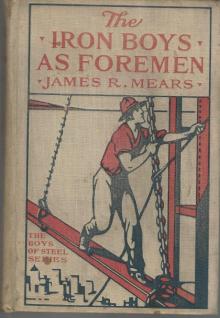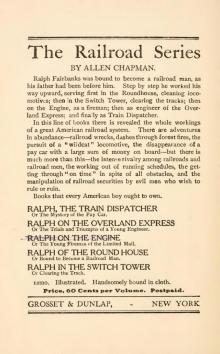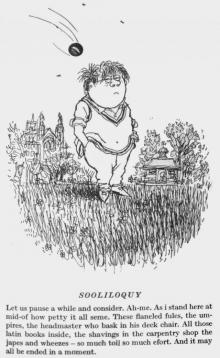- Home
- Mrs. Molesworth
Adventures of Prince Lazybones, and Other Stories
Adventures of Prince Lazybones, and Other Stories Read online
THE ADVENTURES OF PRINCE LAZYBONES AND OTHER STORIES
by
MRS. W. J. HAYS
Author of "Princess Idleways"
Illustrated
Harper & Brothers PublishersNew York and London
1884
"GOOD EVENING, MY DEAR PRINCE."]
CONTENTS
THE ADVENTURES OF PRINCE LAZYBONES
PHIL'S FAIRIES
FLORIO AND FLORELLA: A CHRISTMAS FAIRY TALE
BOREAS BLUSTER'S CHRISTMAS PRESENT
ILLUSTRATIONS
"Good-evening, my dear Prince" (Frontispiece)
"Approach of the swanlike boat"
"Look! There's an eagle"
"Making the sturgeon useful"
THE ADVENTURES OF PRINCE LAZY BONES
CHAPTER I
Of all the illustrious families who have shone like gems upon theearth's surface, none have been more distinguished in their way than theLazybones family; and were I so disposed I might recount their virtuesand trace their talents from a long-forgotten period. But interesting asthe study might prove, it would be a difficult task, and the attention Icrave for Prince Leo would be spent on his ancestors.
Of princely blood and proud birth, Leo was a youth most simple-minded.He knew that much was expected of him, and that he was destined to rule;yet so easily was he satisfied that his greatest happiness was to lieall day basking in the sun or dawdling through his father's park withhis dog at his heels, the heels themselves in a very down-trodden stateof humility, watching with languid gaze the movements of the worldabout him.
And the world just where he lived was very beautiful. On a fertileplain, surrounded by mountain-peaks of great height, threaded by silverstreams, and so well watered that its vegetation was almost tropical,was the estate of Leo's father, Prince Morpheus Lazybones. It had beenin the family for ages, and was so rich in timber and mineral resourcesthat none of its owners had cared to cultivate the land. Timber was cutsparingly, however, because the market for it was too distant, and theminerals remained in their native beds for much the same reason.
The family throve, notwithstanding, and were well supplied with allmanner of delicacies, for the servants were many, and there was never alack of corn or wine.
Leo was most fair to see. To be sure, his drooping lids half concealedhis azure eyes, and his golden locks sometimes hid his snowy forehead;but his smile was charming; his face had such an expression of calmsatisfaction, such a patient tranquillity, that his smile was as thesudden sunshine on a placid lake. It was the smile of the family, aninherited feature, like the blue hood of a Spanish Don. And then it wasgiven so freely: the beggar would have preferred it to be accompaniedwith the jingle of a coin, but as the coin never came and the smile did,he tried to think that it warmed his heart, though his wallet wentempty.
There were those who said a smile cost nothing, else it would not havebeen bestowed. It had a peculiarity of its own which these same criticsalso objected to--it nearly always ended in a yawn.
But Leo heard none of these ill-natured remarks, and, if he had, wouldnot have minded them any more than he did the burs which clung to hisgarments as he rambled through the woods. Poor fellow! he would gladlyhave shared his coppers with a beggar, but he had none to share.
Morpheus Lazybones never seemed to think his son required anything; solong as the boy made no demands, surely nothing could be wanting, andevery one knew _he_ was not equal to any exertion. For years he hadlived the life of an invalid, shut up in his room most of the time,venturing from it only in the sunniest weather, and then with greatcaution. He had no particular malady except that he was a poet, butsurely that was burden enough. To have to endure the common sights andsounds of this earth when one is composing poetry is indeed a trying andtroublesome thing. So Morpheus found it, and therefore he frequentlystayed in bed, and allowed his fancy to rove at its own sweet will.
They lived in what had been a monastery. There had been houses and farmson the Lazybones property, but the money not being forthcoming forrepairs, they had been each in turn left for another in bettercondition, until the monastery--what was left of it--with its solidlybuilt walls, offered what seemed to be a permanent home.
Here Morpheus lined a cell with tapestries and books, and wrote hissonnets. Here Leo slept and ate, and housed his dogs. The servantsgrumbled at the damp and mould, but made the chimneys roar with blazinglogs, and held many a merry carousal where the old monks had prayed andfasted. The more devout ones rebuked these proceedings, and said theywere enough to provoke a visit from the Evil One; but as yet the warninghad no effect, as the revels went on as usual.
Besides being a poet, Morpheus was conducting Leo's education.Undertaken in the common way, this might have interfered with thedelicate modes of thought required for the production of poems, but theLazybones were never without ingenuity. Morpheus so arranged mattersthat Leo could study without damage to his father's poems. The bookswere marked for a month's study, and Leo's recitations consisted of awritten essay which was to comprise all the knowledge acquired in thattime. Thus writing and spelling were included, and made to do duty forthe higher flights of his mind.
I do not tell how often Leo made his returns, neither do I mention howmany papers Morpheus found no time to examine, but I may urge that Leo'sout-door exercise demanded much attention, and that his father'sexcursions in Dream-land were equally exacting. But Leo, though he hatedbooks, did not hate information. He knew every feathered thing by nameas far as he could see it. He knew every oak and pine and fir and nuttree as a familiar friend. He knew every rivulet, every ravine, everyrabbit-burrow. The streams seemed to him as melodious as the song-birds,and the winds had voices. He knew where to find the first blossom ofspring and the latest of autumn, the ripest fruit and most abundantvines. He could tell just where the nests were and the number of eggs,whether of the robin or the waterfowl. He knew the sunniest bank andshadiest dell, the smoothest path, with its carpet of pine-needles andfringe of fern, or the roughest crag and darkest abyss. He could readthe clouds like an open page, and predict fine weather or the comingstorm. He knew where the deer couched and where they came to drink, andwhen the fawns would leave their mothers, and no trout was too cunningfor him.
But he did not know the use of a rifle. He had all sorts of lures forthe creatures he wanted to tame, but no ways of killing them. For whyshould he kill them? There was always food enough; he was seldom hungry,and these were his friends. He liked to look them in the eyes; he likedto win them to him, soothe their fears if they had any, and then watchtheir pretty joy when their liberty was regained. And how could he havedone this if their blood had been upon his hands? How could he havequieted the throbbing little hearts if murder had been in his own?
Thus Leo spent his time, delightfully and innocently. If life were onlya summer's day! But already winter was approaching. Discontent wasbrewing on the estate. Taxes were unpaid; tenants were grumbling at highrents; laborers were threatening and their wives complaining.
Frequently, in the very midst of composing a poem, Morpheus would becalled to adjust a difficulty, settle a dispute, or revise an account.This so disturbed his delicate nerves that illness, or the appearance ofit, was sure to follow. He would then take to his bed, refuse all but alittle spiced wine, allowing no coarse food to pass his lips, and striveto remember the beautiful words of which he had intended to make verses;but, alas! the words had flown, as well as the ideas which had suggestedthem, like so many giddy little butterflies.

 The Iron Boys as Foremen; or, Heading the Diamond Drill Shift
The Iron Boys as Foremen; or, Heading the Diamond Drill Shift An Enchanted Garden: Fairy Stories
An Enchanted Garden: Fairy Stories Grandmother Dear: A Book for Boys and Girls
Grandmother Dear: A Book for Boys and Girls Ralph, the Train Dispatcher; Or, The Mystery of the Pay Car
Ralph, the Train Dispatcher; Or, The Mystery of the Pay Car The Children of the Castle
The Children of the Castle The Magic Nuts
The Magic Nuts Uncanny Tales
Uncanny Tales Silverthorns
Silverthorns The Third Miss St Quentin
The Third Miss St Quentin Christmas-Tree Land
Christmas-Tree Land Philippa
Philippa Jasper
Jasper The Little Old Portrait
The Little Old Portrait Mary: A Nursery Story for Very Little Children
Mary: A Nursery Story for Very Little Children Us, An Old Fashioned Story
Us, An Old Fashioned Story The Constant Prince
The Constant Prince Blanche: A Story for Girls
Blanche: A Story for Girls The Cuckoo Clock
The Cuckoo Clock The Carved Lions
The Carved Lions Tell Me a Story
Tell Me a Story That Girl in Black; and, Bronzie
That Girl in Black; and, Bronzie Sweet Content
Sweet Content Boys and I: A Child's Story for Children
Boys and I: A Child's Story for Children The Man with the Pan-Pipes, and Other Stories
The Man with the Pan-Pipes, and Other Stories Bert Wilson's Fadeaway Ball
Bert Wilson's Fadeaway Ball Nurse Heatherdale's Story
Nurse Heatherdale's Story Adventures of Herr Baby
Adventures of Herr Baby Shaggycoat: The Biography of a Beaver
Shaggycoat: The Biography of a Beaver Adventures of Prince Lazybones, and Other Stories
Adventures of Prince Lazybones, and Other Stories Adventures of Piang the Moro Jungle Boy
Adventures of Piang the Moro Jungle Boy